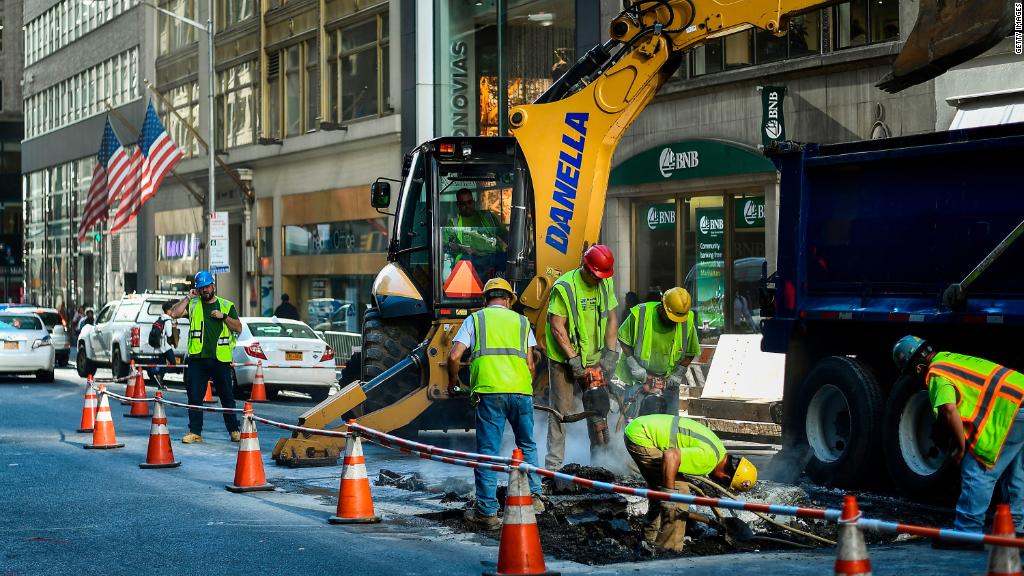
Americans feel very confident about the economy and their job prospects.
About 84% of Americans -- excluding self-employed workers -- say they are not worried about losing their job this year, according to a Marist/NPR poll published Monday that examined the characteristics of the American workforce.
Nine in ten Americans believe that their employer values their work, and the majority of workers say they got a raise last year.
The optimism reflects how healthy the U.S. job market is to start 2018. Unemployment is at its lowest level, 4.1%, in 18 years. The U.S. economy has added jobs for 87 consecutive months, the longest streak on record. It's also grown, albeit slowly, since 2009. Consumer confidence remains very high, and by some indexes, near its highest point since 2000.
Related: American businesses can't find workers
It's also a great time to look for a job. There are nearly 6 million jobs openings in the United States, near an all-time high, according to Labor Department data. Employers increasingly say in surveys that they are forced to pay more as they struggle to find skilled talent or workers willing to do demanding work.
But it's not all sunshine and roses for workers. The growth of the gig economy (read: Uber driver), paired with a persistently high number of workers in part-time jobs, means there are many more Americans working without typical benefits, like health insurance, a retirement plan or pension, according to the Marist/NPR poll.
About 65% of part-time workers and half of contract workers do not receive benefits from their jobs. A little more than half of them earn less than $50,000 a year. For contract workers, they say their income fluctuates month to month, or seasonally.
Related: 95 million Americans are still out of the workforce
The poll's findings on part-timers builds on previous research. University of New Hampshire professor Rebecca Glauber found in a separate study that part-time workers who want a full-time job are five times likelier to live in poverty compared to full-timers. These part-timers are also paid 19% less per hour compared with their full-time counterparts in similar, hourly jobs.
In December, there were 4.9 million Americans working part-time who wanted a full-time position. That figure has come down significantly since the Great Recession, but it's still slightly higher than its pre-recession level.
However, there are far more Americans working part-time for voluntary reasons -- lifestyle preference, family reasons and so on. There were 21.1 million voluntary part-time workers in December. That figure is up from 19.5 million a decade ago.
And the benefits of the gig economy appear to be rubbing off on Uber drivers and Task Rabbiters: 66% of part-time workers say they prefer their schedule over the rigors of a full-time gig, according to the Marist/NPR poll, which surveyed nearly 1,300 adults in December.


